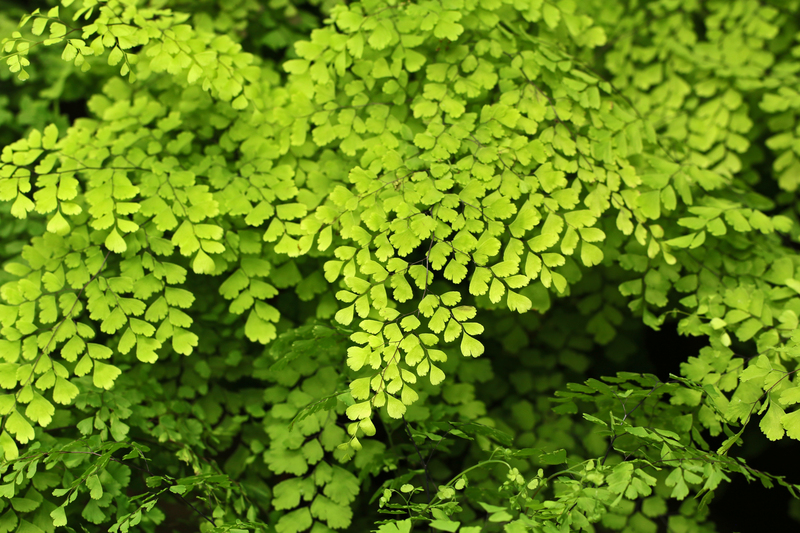Transforming Organic Waste into Fertile Soil
Posted on 23/08/2025
Transforming Organic Waste into Fertile Soil: A Comprehensive Guide
Turning organic waste into fertile soil is more than just a sustainable solution for managing our daily waste--it's a practical step toward building healthier plants, gardens, and a greener planet. Every carrot peel, coffee ground, and leaf collected can serve as an ingredient in the wonderful process of soil enrichment. This guide will help you understand the techniques, benefits, and best practices for converting organic waste into fertile soil.
Understanding Organic Waste and Its Potential
Organic waste refers to any biodegradable material derived from plants or animals, such as food scraps, garden clippings, and even paper products. When improperly managed, this waste can pile up in landfills, where its decomposition contributes to greenhouse gas emissions. However, with the right methods, these materials can be efficiently transformed into nutrient-rich compost--the building block of healthy soil.
Major Sources of Organic Waste
- Kitchen scraps: vegetable peels, fruit rinds, eggshells, coffee grounds
- Yard debris: grass clippings, leaves, branches, plant cuttings
- Paper products: coffee filters, paper towels (free of chemicals)
- Manure from herbivorous animals
Transforming household organic waste into nutrient-rich soil helps reduce landfill usage and supports local food production, making composting an essential practice for eco-friendly gardening.

The Science Behind Soil Fertility and Composting
The process of organic waste transformation relies on natural microbial activity. Microorganisms such as bacteria, fungi, and invertebrates like worms break down complex organic matter and convert it into humus--a dark, crumbly substance loaded with plant nutrients. Composting not only recycles waste but also improves soil structure, moisture retention, and nutrient content.
Benefits of Creating Fertile Soil from Organic Waste
- Reduces landfill waste: Diverts organic matter from landfills, minimizing methane emissions.
- Builds healthy soil: Enhances soil fertility, structure, and microbiology.
- Supports plant growth: Provides essential nutrients for gardens, lawns, and crops.
- Decreases reliance on chemical fertilizers: Natural compost reduces the need for artificial soil amendments.
- Boosts water retention: Compost-enriched soil is more drought-resistant due to improved moisture holding capacity.
How to Transform Organic Waste into Fertile Soil
Step 1: Collecting Organic Materials
The first stage in organic waste composting is gathering suitable materials. Strive for variety--a combination of greens (nitrogen-rich) and browns (carbon-rich) creates balanced compost.
- Greens: Fresh grass clippings, vegetable scraps, fruit peels, and coffee grounds
- Browns: Dead leaves, straw, shredded paper, cardboard, and wood chips
Step 2: Creating the Right Mix
Successful composting relies on the right balance of materials. Ideally, layer browns and greens in a 2:1 ratio (two parts brown to one part green). This ensures balanced decomposition, proper aeration, and limits odor.
Step 3: Choosing Your Composting Method
- Pile or Bin Composting: The traditional approach. Build a pile in the garden or use a purchased compost bin. Turn the pile every couple of weeks to introduce oxygen, an essential ingredient for decomposition.
- Tumbler Composting: Compost tumblers make mixing easy and are suitable for smaller spaces, allowing for faster and odor-free composting.
- Vermicomposting: Worm composting uses red worms to decompose food scraps quickly, resulting in worm castings--a nutrient-dense soil amendment.
- Bokashi Composting: An anaerobic process that ferments food waste in a sealed container using specialized bran. Great for dairy, meat, and cooked food scraps.
Step 4: Maintain and Monitor
Turning your compost at least every two weeks helps speed up decomposition and aerates the pile. Aim for moist, not soggy conditions--think of a wrung-out sponge. If it becomes too wet, add more brown material; if too dry, add more greens or water lightly.
- Monitor temperature: Compost works best at 130-150?F (55-65?C).
- Check for odor: Healthy compost smells earthy, not rotten.
- Time: Depending on the method, you can have finished compost in 2-6 months.
Step 5: Harvest and Apply the Finished Compost
The result of organic waste transformation is a dark, crumbly, earthy-smelling material. Once your compost resembles soil and isn't hot or steamy, it's ready. Sift out any large or unfinished bits and add them back to the pile. Spread the mature compost onto your garden beds, containers, or lawns--enriching your soil and closing the organic waste loop.
Advanced Techniques for Maximizing Soil Fertility
Hot Composting
Hot composting is an accelerated process that yields finished compost in as little as 3-6 weeks. By carefully balancing greens and browns, maintaining adequate moisture, and turning the pile frequently, you can achieve higher temperatures, which kills weeds and pathogens.
Cold Composting
With cold composting, you simply add organic waste to a pile and wait. The process is slower (taking up to a year), but it's less labor-intensive and still provides fertile soil amendments. Ideal for gardeners with more time and less need for rapid compost production.
Vermicomposting: Harnessing the Power of Worms
Vermicomposting takes composting to a new level by using red wiggler worms to digest kitchen scraps. The byproduct, called worm castings, contains plant growth hormones and beneficial microbes, making it one of the richest natural fertilizers available.
- Keep the bin in a temperate environment (55-77?F, 13-25?C).
- Feed worms with fruit and vegetable scraps but avoid meat, dairy, and oils.
- Harvest castings every few months for an incredibly potent soil amendment.
Common Challenges and Solutions in Organic Waste Transformation
Odors
- Cause: Too many "greens" or overwatering
- Solution: Add more browns and aerate the pile regularly.
Pests
- Cause: Inclusion of meat, dairy, or unbalanced piles
- Solution: Only compost plant-based kitchen scraps. Secure your compost bin or pile with a lid or mesh.
Slow Decomposition
- Cause: Pile is too dry, lacks nitrogen, or isn't mixed
- Solution: Add water, more green materials, and turn the pile more frequently.
Using Fertile Compost for Soil Enrichment
Once you've successfully turned organic waste into fertile soil, it's time to put your product to work. Compost can be used in a variety of ways to maximize the benefit to your plants:
- Soil amendment: Mix compost into garden beds to enhance soil fertility and structure.
- Top dressing: Apply a layer of compost around established plants and trees as a slow-release fertilizer.
- Potting mix: Blend compost with soil for improved seed starting and container gardening.
- Lawn application: Spread thin layers over your lawn to improve turf health and microbial activity.
Eco-Friendly Waste Management and Community Impact
Large-scale organic waste recycling not only improves individual gardens but contributes to community-wide sustainability. Many cities now offer curbside organic waste collection, diverting tons of material from landfills each year. Community compost projects can provide valuable soil amendments for public parks, schools, and gardens, while also educating citizens about green waste management.
Participating in Local Composting Initiatives
- Check for a municipal composting program in your area.
- Join or start a community garden with a compost project.
- Encourage local schools and businesses to recycle organic waste.
The Environmental Impact: Why Composting Matters
Converting organic waste into fertile soil has significant environmental advantages. By embracing composting, we:
- Reduce methane production: Landfilled organic matter decomposes anaerobically, emitting methane, a greenhouse gas 25 times more potent than CO2.
- Preserve landfill space: Composting extends the life of existing landfill sites.
- Enhance carbon sequestration: Healthy soils trap carbon, mitigating climate change.
- Promote water conservation: Compost-rich soil retains moisture, reducing the need for irrigation.

Frequently Asked Questions about Transforming Organic Waste
What should I avoid composting?
- Meat, dairy, and oils (attract pests and cause odors)
- Pet waste from carnivores (can contain harmful pathogens)
- Treated wood or diseased plant material
- Glossy paper and chemically treated products
How can I speed up the composting process?
- Chop or shred larger items to increase surface area.
- Maintain a balance of greens and browns.
- Turn or aerate the pile regularly.
- Monitor moisture and temperature.
Is composting possible in small spaces?
Absolutely! Use compact compost bins, countertop worm bins (vermicomposters), or Bokashi containers that fit in apartments and urban settings. Transforming kitchen scraps into rich soil is accessible to everyone.
Conclusion: Closing the Loop--From Waste to Wealth
Turning organic waste into fertile soil is a transformative practice that reduces environmental impact, enriches gardens, and closes the loop on food and yard waste. By composting, we harness natural processes to create a sustainable source of nutrients for all types of plant life, from backyard gardens to public parks.
The journey from waste to soil is not just eco-friendly--it's essential for our planet's future.
Start today, and let every banana peel and leaf be part of a greener tomorrow!
Latest Posts
Explore the top 9 fast-growing hedges for privacy solutions
Designing a Safe Haven for Kids in Your Backyard
Shielding Your Garden from the Wrath of Severe Weather

